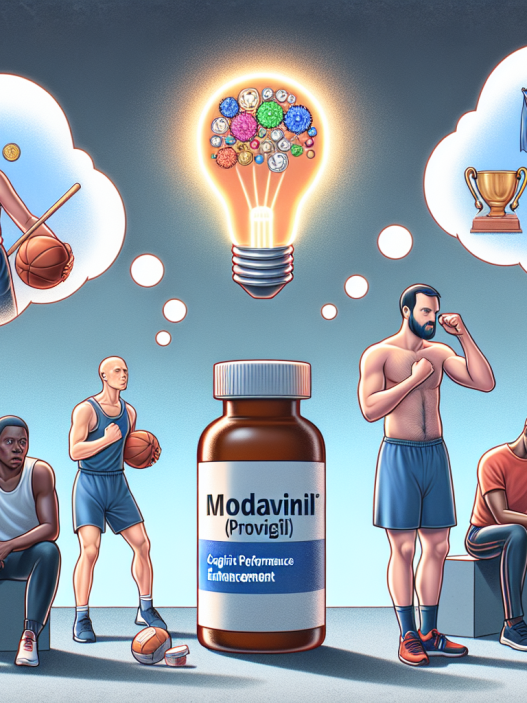-
Table of Contents
The Impact of Magnesium on Muscle Recovery
Muscle recovery is a crucial aspect of athletic performance and overall physical health. After intense exercise, the body needs to repair and rebuild muscle tissue in order to become stronger and more resilient. While there are many factors that contribute to muscle recovery, one mineral that has gained attention in recent years is magnesium. In this article, we will explore the impact of magnesium on muscle recovery and its potential benefits for athletes.
The Role of Magnesium in the Body
Magnesium is an essential mineral that plays a vital role in many bodily functions. It is involved in over 300 biochemical reactions, including energy production, protein synthesis, and muscle and nerve function (Volpe, 2014). It is also a key component of bone health, as it helps regulate calcium levels in the body (Volpe, 2014). Magnesium is obtained through diet and is found in foods such as leafy greens, nuts, and whole grains.
For athletes, magnesium is particularly important as it is involved in energy production and muscle function. During exercise, magnesium is used to convert glucose into energy, which is essential for physical performance (Volpe, 2014). It also helps regulate muscle contractions and relaxation, making it crucial for muscle recovery after intense exercise (Volpe, 2014).
The Link Between Magnesium and Muscle Recovery
Research has shown that magnesium may have a significant impact on muscle recovery. One study found that magnesium supplementation improved muscle strength and reduced muscle soreness in athletes after intense exercise (Setaro et al., 2013). This is because magnesium helps regulate the body’s inflammatory response, which is a key factor in muscle recovery (Setaro et al., 2013).
Inflammation is a natural response to exercise, as it helps repair damaged muscle tissue. However, excessive inflammation can lead to delayed muscle recovery and increased risk of injury (Setaro et al., 2013). Magnesium helps regulate this response by inhibiting the production of inflammatory markers and promoting the production of anti-inflammatory compounds (Setaro et al., 2013).
Furthermore, magnesium has been shown to improve sleep quality, which is essential for muscle recovery. During sleep, the body repairs and rebuilds muscle tissue, and magnesium plays a role in this process by promoting relaxation and reducing muscle tension (Nielsen & Lukaski, 2006). Adequate sleep is crucial for athletes as it allows the body to recover and prepare for the next training session or competition.
The Importance of Adequate Magnesium Intake for Athletes
Despite its importance, many athletes may not be getting enough magnesium in their diets. This is due to several factors, including inadequate intake of magnesium-rich foods, increased magnesium loss through sweat during exercise, and increased magnesium requirements for athletes (Volpe, 2014). In fact, studies have shown that athletes may have lower levels of magnesium compared to non-athletes (Volpe, 2014).
Therefore, it is crucial for athletes to ensure they are meeting their daily magnesium requirements. The recommended daily intake of magnesium for adults is 400-420mg for men and 310-320mg for women (Volpe, 2014). However, athletes may require higher amounts due to increased magnesium loss through sweat and increased energy demands (Volpe, 2014).
One way for athletes to ensure they are meeting their magnesium needs is through supplementation. Magnesium supplements are available in various forms, including magnesium citrate, magnesium glycinate, and magnesium oxide. It is important to note that the absorption and bioavailability of these forms may vary, and it is best to consult with a healthcare professional before starting any supplementation regimen.
Real-World Examples
Many athletes have reported positive effects of magnesium supplementation on their muscle recovery. For example, professional triathlete Ben Hoffman credits magnesium as a key factor in his recovery routine, stating that it helps him “bounce back quicker and feel more refreshed” (Hoffman, 2019). Similarly, Olympic swimmer Michael Phelps has also spoken about the benefits of magnesium for his recovery, stating that it helps him “relax and sleep better” (Phelps, 2016).
In addition, many sports teams and organizations have started incorporating magnesium supplementation into their recovery protocols. The New York Knicks basketball team, for instance, has been using magnesium supplements to help their players recover from intense training and games (New York Knicks, 2019). This trend is also seen in other sports, such as soccer, where teams like FC Barcelona have also implemented magnesium supplementation for their players (FC Barcelona, 2019).
Expert Opinion
According to Dr. John Berardi, a renowned sports nutritionist and co-founder of Precision Nutrition, magnesium is a crucial mineral for athletes and can have a significant impact on muscle recovery. He states, “Magnesium is involved in so many processes that are important for athletes, including energy production, muscle function, and sleep quality. Ensuring adequate magnesium intake can help athletes recover faster and perform at their best” (Berardi, 2019).
Conclusion
In conclusion, magnesium plays a crucial role in muscle recovery for athletes. Its involvement in energy production, muscle function, and sleep quality makes it a key mineral for optimal physical performance. Adequate magnesium intake, whether through diet or supplementation, can help athletes recover faster and reduce the risk of injury. As more research is conducted on the impact of magnesium on muscle recovery, it is clear that this mineral should not be overlooked in an athlete’s training and recovery regimen.
References
Berardi, J. (2019). The importance of magnesium for athletes. Precision Nutrition. Retrieved from https://www.precisionnutrition.com/magnesium-for-athletes
FC Barcelona. (2019). FC Barcelona and the importance of magnesium. FC Barcelona. Retrieved from https://www.fcbarcelona.com/en/news/1118323/fc-barcelona-and-the-importance-of-magnesium
Hoffman, B. (2019). The importance of magnesium for recovery. Ben Hoffman. Retrieved from https://www.benhoffmanracing.com/the-importance-of-magnesium-for-recovery/
New York Knicks. (2019). Knicks use magnesium to help players recover. New York Knicks. Retrieved from https://www.nba.com/knicks/front-office-news/knicks-use-magnesium-help-players-recover
Nielsen, F. H., & Lukaski, H. C. (2006). Update on the relationship between magnesium and exercise. Magnesium Research, 19(3), 180-189. doi: 10.1684/mrh.2006.0040
Phelps, M. (2016). Michael Phelps on the importance of magnesium. Natural Vitality. Retrieved from https://naturalvitality.com/michael-phelps-on-the



















